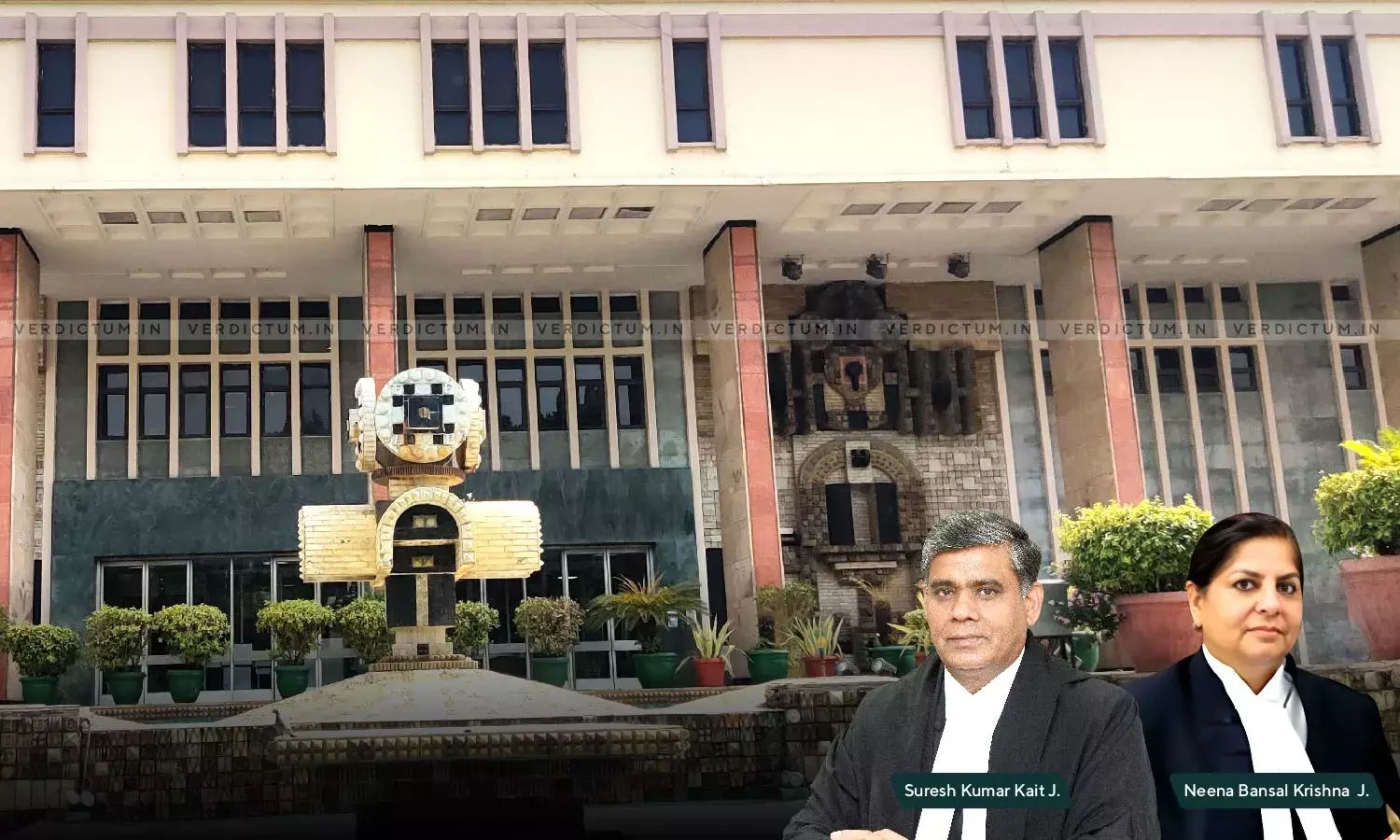Living Together In Marriage Is Not Irreversible Act: Delhi HC While Upholding Divorce Of Couple Living Separately For 15 Years

The Delhi High Court has upheld the divorce of the husband and wife who were living separately for the last fifteen years. It said that living together in a marriage is not an irreversible act.
The appellant i.e., the wife had filed an appeal against the judgment vide which the Divorce Petition filed by the respondent i.e., the husband was allowed on the ground of ‘cruelty’ under Section 13(1) (ia) of the Hindu Marriage Act, 1955 (HMA).
A Division Bench comprising Justice Suresh Kumar Kait and Justice Neena Bansal Krishna held, “Living together in a marriage is not an irreversible act. But marriage is a tie between two parties and if this tie is not working under any circumstances, we see no purpose in postponing the inevitability of the situation.”
The Bench noted that the parties are living separately for 15 years now and there is no chance of reconciliation between them.
Advocate Renu Gupta represented the appellant/wife while Advocate Meera Kaura Patel represented the respondent/husband.
In this case, the appellant got married to the respondent in the year 2006 and one son was born from the said wedlock in 2007. The respondent claimed that the appellant was aggressive, quarrelsome, and violent in nature towards him and his family members. It was alleged that she used to frequently leave the matrimonial home without informing him or the family and on seeking explanation, she used to quarrel.
Thereafter, the appellant filed a complaint in CAW Cell against the respondent and his family but subsequently withdrew the same, however, she then filed a complaint case under the Protection of Women from Domestic Violence Act, 2005 (DV Act). However, it was also withdrawn by her in 2011 and additionally she filed a petition under Section 125 Cr.PC. whereby the respondent was directed to pay an interim maintenance of Rs. 3,000/- per month to her. The Family Court sustained cruelty committed by the appellant upon the respondent and concluded that the husband was entitled to divorce aggrieved by which the wife approached the High Court.
The High Court in view of the facts and circumstances of the case observed, “The marriage is not simply a union between the two individuals but is a social institution having legal, economic, cultural and religious ramifications. Functionally, marriages are seen as an institution that propagates of social and cultural capital as they help in identifying kinship ties, regulating sexual behaviour and consolidating property and social prestige as has been held in the case of Sivasankaran vs. Santhimeenal 2021 SCC OnLine SC 702.”
The Court said that prolonged differences made the life of the respondent bereft of peace and conjugal relationship which is the bedrock of any matrimonial relationship, and thus, such a matrimonial relationship rests only on irritations and daily fighting.
“… it can be held that this conduct of appellant became a source of cruelty towards the respondent. … Furthermore, both the spouses have been living separately since 08.12.2008 i.e. a period of almost 15 years. It has been already noted time and again in the judgments of the Supreme Court that continuous separation between the parties for a long period itself is a ground for divorce”, also noted the Court.
The Court concluded that such a long separation peppered with false allegations, police reports and criminal trial has become a source of mental cruelty and any insistence either to continue the relationship or modifying the Family Court’s order would only be inflicting further cruelty upon both the parties.
Accordingly, the High Court dismissed the appeal.
Cause Title- Mamta v. Pradeep Kumar (2023:DHC:6384-DB)


